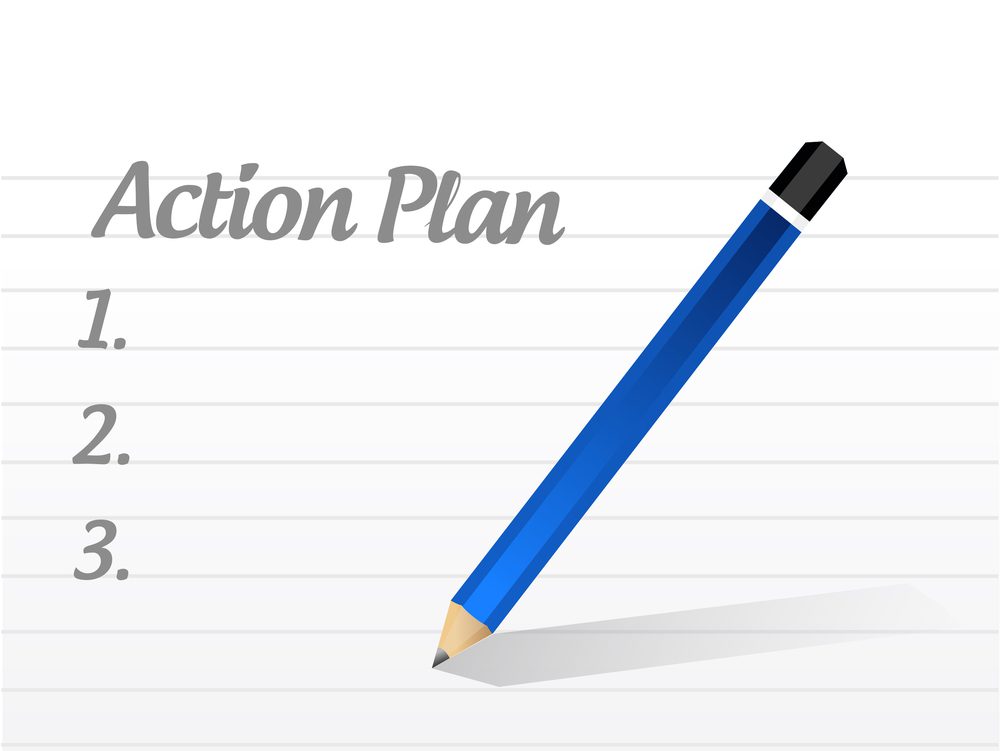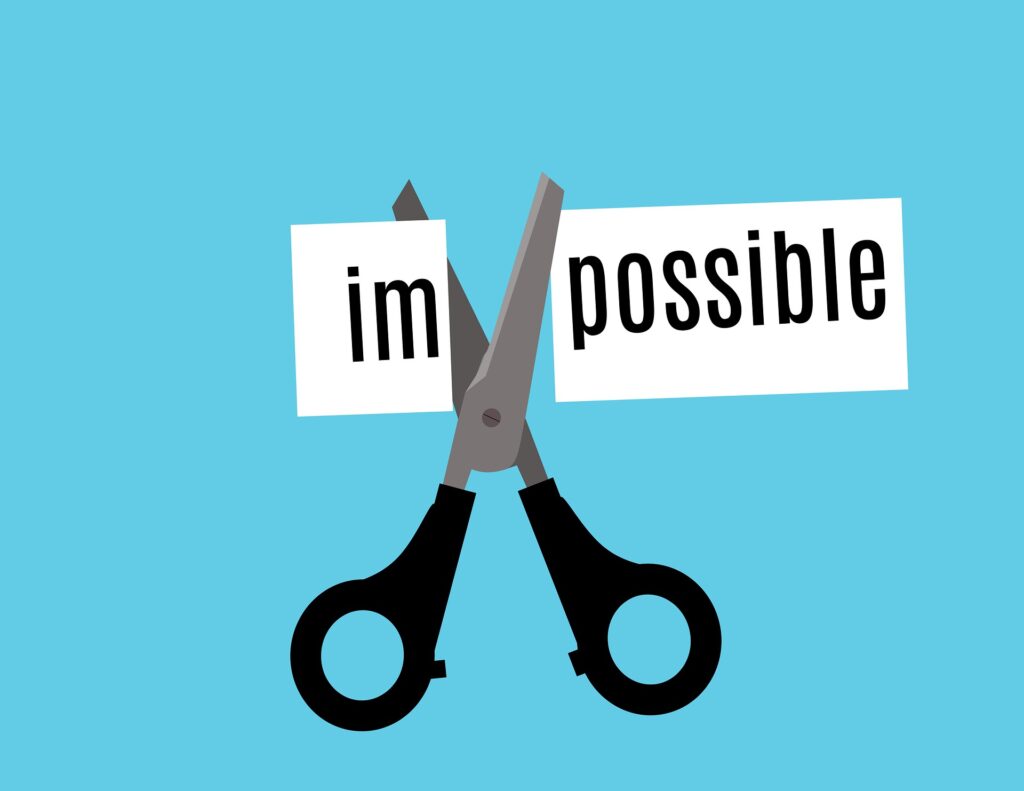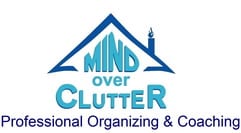How to master the fear of decluttering
Reading time – 10 minutes
There are lots of blogs on this site helping you to organize any space in your home. You are armed with great information to get started but you’re afraid. All the clutter is overwhelming, and makes you feel anxious and stressed, you want to turn away and leave. This is a common response when you decide to make a change. There are many reasons why letting go of things can be difficult. In this article we are going to look at the fear of decision making.
Organized is defined as
- knowing what you have
- having what you need
- knowing where to find items
- finding things when you need them
Keep this definition in mind as you start making decisions about what to keep and what to let go of.

Mindset 1: I won’t know I need it until I don’t have it
Instead of worrying about not having something change your mindset to can I:
- Borrow it
- Do it another way
- Buy it again, try applying the minimalist 20/20 rule. If you can replace it in 20 minutes for under $20 it is not worth storing for just in case.
- Is it still useful to me?
- Is it still good? Many things have expiry dates, like food, medications, and cosmetics.
- Is it time to move on from having too much unnecessary stuff and make my life easier?
Instead of thinking about what you might need someday in an abstract way, change your mindset to when did I last use it? When you put your decision into measurable terms it is easier to decide if the item is important.
Mindset 2: I have never been good at making decisions
Taking responsibility for making decisions can be terrifying. I once heard, that even when you fall on your face you are still moving forward. We learn from mistakes and get better at doing things. Change your focus from not making mistakes to taking risks. You will get better at making good decisions:
- Practice makes perfect, as you take risks making decisions, it becomes less frightening and easier each time
- Pick favourites – it is ok not to love everything equally give yourself permission to have favourites and keep those items
- Treasure hunting – don’t focus on what you are giving away focus on what treasures you might find, make it a fun adventure
- Don’t let the past control your future – decide to take control of your space and make the decisions necessary to make your plan a success, you can do it

Don’t get trapped into keeping things for the reasons listed above. Be aware of those thoughts and ideas and when they start to affect your ability to make decisions, STOP. Clear your mind of these thoughts and remember you are good at making decisions to let go of things.
Mindset 3: It takes so much mental energy to make all those decisions
I always tell clients that decluttering and organizing will take mental energy and they will be tired after our session. Plan for needing energy, enthusiasm and excitement towards creating a new space you love that is energizing, creative and comfortable. Change your mindset from I am too tired to do this to, lets get started on this new journey by:
- Setting an amount of time to work that is right for you so you don’t get burned out, increase the amount of time until you can work for 1 hour or longer without feeling overwhelmed
- Decluttering and organizing get easier and take less energy as you get used to the system of sorting and making decisions more quickly
- Do it at your high energy time of day
- Reward yourself when the session is over
- Break the room into smaller bites so each bite is not taxing you to your maximum abilities
Let’s get started,
Take the first step

When you think about decluttering and organizing your home where do you feel tension in your body? Is it in your:
- Stomach
- Shoulder
- Headache
Recognize your reaction, acknowledge it, understand it, relax and move through that feeling of anxiety. You can do it.
Set a plan
- How much time will you spend in a session, 15 minutes, 30 minutes, 1 hour or longer?
- Which room will you start on? Try starting with the one that is bothering you the most.
- Which part of the room will you do first a drawer, cupboard, or table? Pick a starting point and then move around the room from right to left.
- What questions will you ask yourself to help you decide to keep it or remove it?
Place your unneeded items in a box to be donated or offered to a friend or family member.
Plan the next session
Make an appointment with yourself; the date, time and area to work on to keep up the momentum. The first session may have been hard and short. Practice makes perfect and makes it easier to let go of things. In each session, you will make more progress as you have a plan to follow and you are able to work longer.

Reward yourself
Big or small, reward yourself for overcoming your fear and successfully removing some items from your home. You’re still alive, you survived and you did it.
Need some support or guidance for your project
There are 3 ways I can help you:
Book a virtual organizing appointment and we can do it together. I’ll be there with you watching you through your computer, phone or tablet and helping you with the process. https://mindoverclutter.ca/virtual-organizing-services/
If you’re having trouble making changes to your home book a coaching appointment to discuss how to reduce your fears with making changes. https://mindoverclutter.as.me/organizingsession
If you live in the Niagara Region of Ontario, Canada book an in person session for us to work together in your home. https://mindoverclutter.ca/contact/


Julie Stobbe is a Trained Professional Organizer and Lifestyle Organizing Coach who brings happiness to homes and organization to offices, coaching you virtually using Zoom. She has been working with clients since 2006 to provide customized organizing solutions to suit their individual needs and situations. She uses her love of teaching to reduce clutter, in your home, office, mind and time. She guides and supports you to be accountable for your time, to complete projects and to reach your goals. If you’re in a difficult transition Julie can coach you to break-free of emotional clutter constraining you from living life on your terms. Online courses are available to help instruct, coach and support your organizing projects. Get started by downloading Tips for Reorganizing 9 Rooms.
Contact her at julie@mindoverclutter.ca


Great suggestions Julie
Thank you, understanding what your fearful of makes it easier to overcome it.
I have a lot of difficulty making decisions, but I never thought of how that impacts my relationship with clutter. Food for thought for sure!
I am always happy to hear when my blog gives new ideas to consider. Now that you know how you make decisions might affect how much or what type of cluuter you have you can decide what to do next.
It’s amazing how one part of our brains can talk another part of own brains from taking action. We can sabotage before we even start. There is always enough “truth” in the argument against letting go to be troublesome. Every now and then, we might let go of something that we end up regretting. My experience is that it doesn’t happen very often, and there is almost always a pathway forward if this happens.
Yes I agree with you. Most people make good decisions and we can’t be 100% correct all the time. We will let go of something we could have used. Focus on the idea some else is using it and needs it. As you stated there is a pathway forward.
So many individuals (and even novice organizers) focus on what needs to be done with tangible items without considering how mindset and motivation are actually the keys to getting anything organized at all. It would be easy to organize someone else’s items if you had no attachments and the other person didn’t care what happened to them, but people’s emotions and mindsets determine everything from motivation to prioritization to emotional stamina. That fear of decluttering is real, and as you’ve pointed out, conquering the fear must come before all the rest.
Thank you for you lovely comment. My company name, Mind over Clutter says it all.